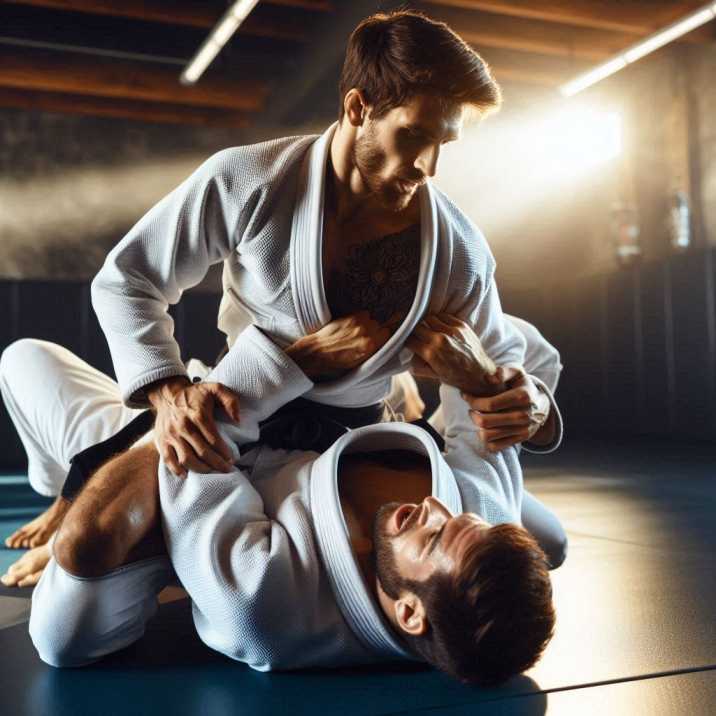Introduction:
Table of Contents
Krav Maga and Brazilian Jiu-Jitsu are both popular disciplines known for their effectiveness in self-defense and combat sports. While they share similarities in promoting personal safety and physical fitness, they differ significantly in their origins, techniques, and philosophies. This blog post aims to provide a comprehensive comparison between Krav Maga vs Brazilian Jiu-Jitsu, helping you understand their unique features and benefits.
Origins and History
Origins of Krav Maga
Krav Maga, Hebrew for “contact combat,” originated in the 1930s in Czechoslovakia and was further developed in Israel by Imi Lichtenfeld. Initially designed as a self-defense system for Jewish citizens to defend against fascist groups, it later evolved into a military combat system adopted by the Israeli Defense Forces (IDF). Krav Maga incorporates techniques from boxing, wrestling, judo, and karate, focusing on practicality and efficiency in real-life combat scenarios.

Origins of Brazilian Jiu-Jitsu
Brazilian Jiu-Jitsu (BJJ) traces its roots back to Japanese Jiu-Jitsu and Judo. Mitsuyo Maeda, a Japanese judoka, taught Jiu-Jitsu to Carlos Gracie in Brazil in the early 20th century. Carlos and his brothers adapted the techniques to emphasize ground fighting and submissions, eventually forming Brazilian Jiu-Jitsu. BJJ gained prominence through the Gracie family’s success in challenge matches and later became a core component of mixed martial arts (MMA) training due to its effectiveness in grappling and ground control.
Core Principles and Philosophy
Principles of Krav Maga
Krav Maga’s principles revolve around neutralizing threats quickly and decisively. It emphasizes practical techniques that can be applied under stress, focusing on simultaneous defense and attack to eliminate opponents swiftly. Krav Maga training also includes situational awareness, preemptive strikes, and techniques to handle various armed and unarmed attacks.
Principles of Brazilian Jiu-Jitsu
Brazilian Jiu-Jitsu principles center on leverage and technique over brute strength. BJJ practitioners learn how to control opponents on the ground through positional dominance and submissions. The philosophy emphasizes patience, adaptability, and using an opponent’s strength and momentum against them. BJJ training also emphasizes the importance of positional hierarchy and strategic thinking during grappling exchanges.
Techniques and Applications
Offensive and Defensive Techniques in Krav Maga
Krav Maga techniques include a combination of strikes (such as punches, kicks, elbows, and knees), blocks, and defenses against common attacks like chokes, grabs, and strikes with weapons. It emphasizes aggressive counterattacks aimed at disabling opponents quickly and escaping dangerous situations.
Grappling and Ground-Fighting Techniques in Brazilian Jiu-Jitsu
Brazilian Jiu-Jitsu is renowned for its ground-fighting techniques, focusing on positional control, escapes, and submissions. BJJ practitioners learn various grips, sweeps, transitions, and submissions (like joint locks and chokes) to dominate opponents on the ground. Techniques are practiced through sparring (rolling), where practitioners apply techniques against resisting opponents in a controlled environment.
Training Methods
Training Intensity and Focus in Krav Maga
Krav Maga training sessions are characterized by high intensity and a focus on real-world scenarios. Classes typically involve drills that simulate various threatening situations, such as armed assaults or multiple attackers. Training emphasizes rapid decision-making, aggression in self-defense responses, and conditioning to handle physical stress. Techniques are practiced repetitively to develop muscle memory and instinctive reactions.
Sparring and Drilling in Brazilian Jiu-Jitsu
Brazilian Jiu-Jitsu training involves a combination of drilling and live sparring (rolling). Drilling focuses on practicing specific techniques, transitions, and submissions against a non-resisting partner. Sparring sessions allow practitioners to apply techniques against resisting opponents, promoting adaptability, timing, and problem-solving skills. BJJ training often includes positional sparring, where practitioners start from specific positions (like guard or mount) to refine techniques in different scenarios.
Fitness and Conditioning
Fitness Benefits of Krav Maga
Krav Maga provides comprehensive fitness benefits by combining cardiovascular conditioning, strength training, and agility development. Classes include dynamic warm-ups, intense striking drills (like punching and kicking combinations), and bodyweight exercises (such as push-ups and burpees). The high-intensity nature of Krav Maga training promotes fat burning, muscle toning, and overall physical endurance.
Physical Conditioning through BJJ Training
Brazilian Jiu-Jitsu training enhances physical conditioning through a focus on muscular endurance, flexibility, and core strength. Techniques like grappling and positional control require significant physical exertion, improving cardiovascular fitness and muscular endurance. BJJ also promotes flexibility through movements like joint manipulations and guard passes, enhancing overall mobility and agility.
Real-World Applications
Practical Scenarios for Krav Maga
Krav Maga prepares practitioners for real-world self-defense situations by teaching techniques that are effective in quickly neutralizing threats. Training includes scenarios such as defending against grabs, chokes, punches, and weapon attacks. Practitioners learn to assess threats, react decisively under stress, and use available objects or environments to their advantage. Krav Maga’s practical approach aims to empower individuals to protect themselves in various unpredictable situations.
Self-Defense Applications of Brazilian Jiu-Jitsu
Brazilian Jiu-Jitsu applies its techniques primarily in controlled sparring and competition settings, but its principles can also be adapted to self-defense scenarios. BJJ focuses on leverage, technique, and positional dominance to control and subdue opponents without relying on striking. Techniques like joint locks and chokes provide effective options for self-defense, emphasizing restraint and de-escalation while maintaining control over potentially dangerous situations.
Philosophical Differences
Mindset and Approach to Combat
Krav Maga promotes an aggressive mindset aimed at swiftly neutralizing threats to ensure personal safety. It emphasizes preemptive strikes, continuous aggression until the threat is eliminated, and escaping dangerous situations using any means necessary. The mindset in Krav Maga is geared towards survival and practicality in real-world confrontations.
Values and Ethics in Training
Brazilian Jiu-Jitsu places a strong emphasis on respect, discipline, and sportsmanship in training. Its philosophy encourages humility, perseverance, and mutual respect among practitioners. BJJ promotes the idea of continuous learning and improvement through adversity, fostering a supportive training environment where practitioners challenge each other to grow both physically and mentally.
Conclusion:
In conclusion, both Krav Maga and Brazilian Jiu-Jitsu offer unique benefits depending on your goals and circumstances. Whether you prioritize practical self-defense skills or enjoy the technical challenges of ground fighting, understanding the differences between these disciplines will help you choose the right path for your martial arts journey.

FAQs:
- What is Krav Maga?
- Answer: Krav Maga is a practical self-defense system developed for the Israeli military.
- What is Brazilian Jiu-Jitsu?
- Answer: Brazilian Jiu-Jitsu is a martial art focused on ground fighting and submissions.
- Which is better for self-defense, Krav Maga or BJJ?
- Answer: Krav Maga is ideal for real-world self-defense scenarios, while BJJ is effective for controlling opponents in ground situations.
- Can you train both Krav Maga and BJJ?
- Answer: Yes, many practitioners combine both disciplines to enhance their overall self-defense skills.
- Is Krav Maga more aggressive than BJJ?
- Answer: Krav Maga emphasizes aggression in neutralizing threats, while BJJ focuses on technique and leverage.


